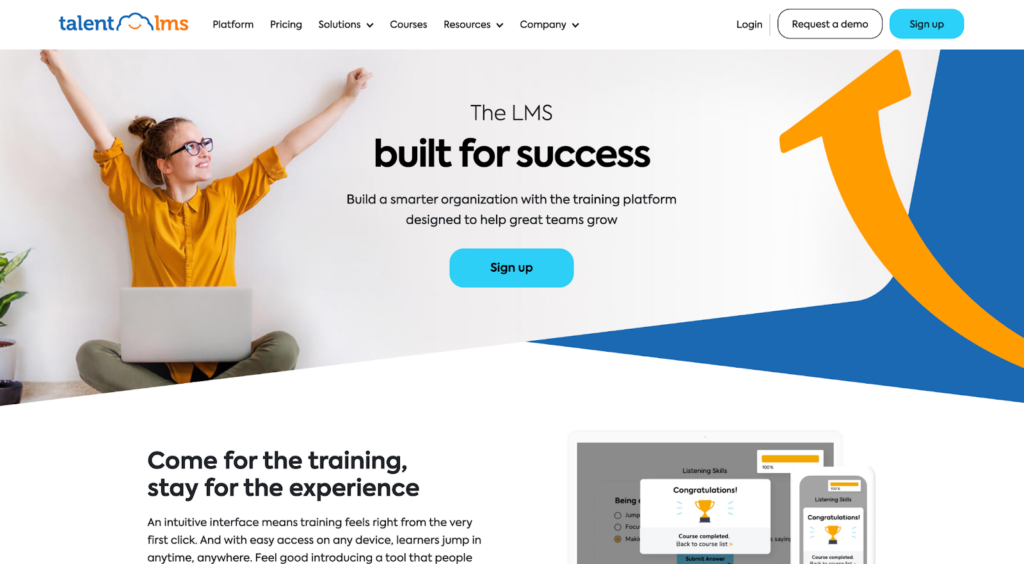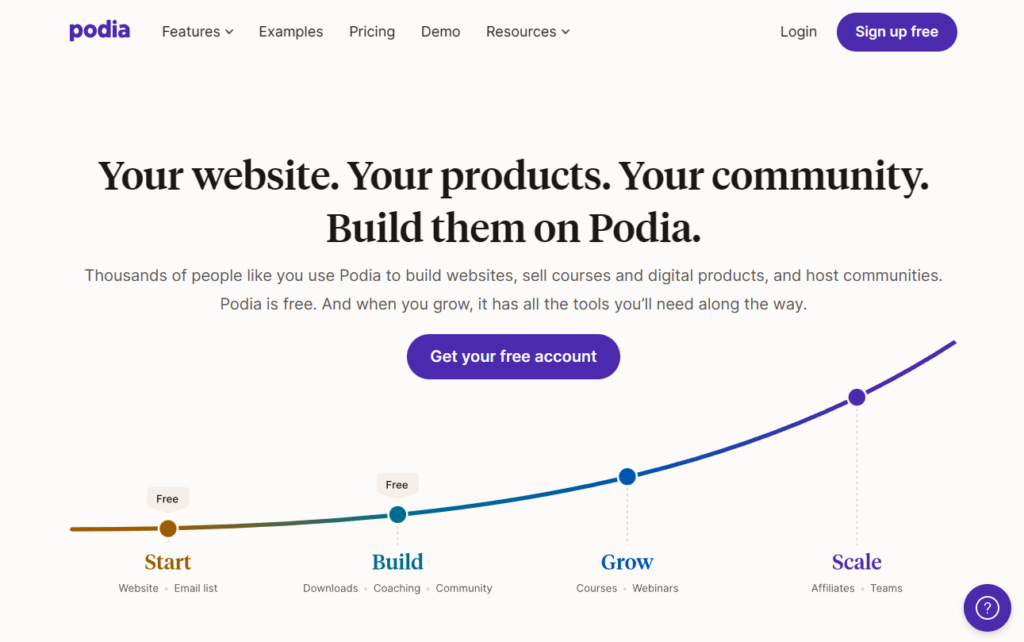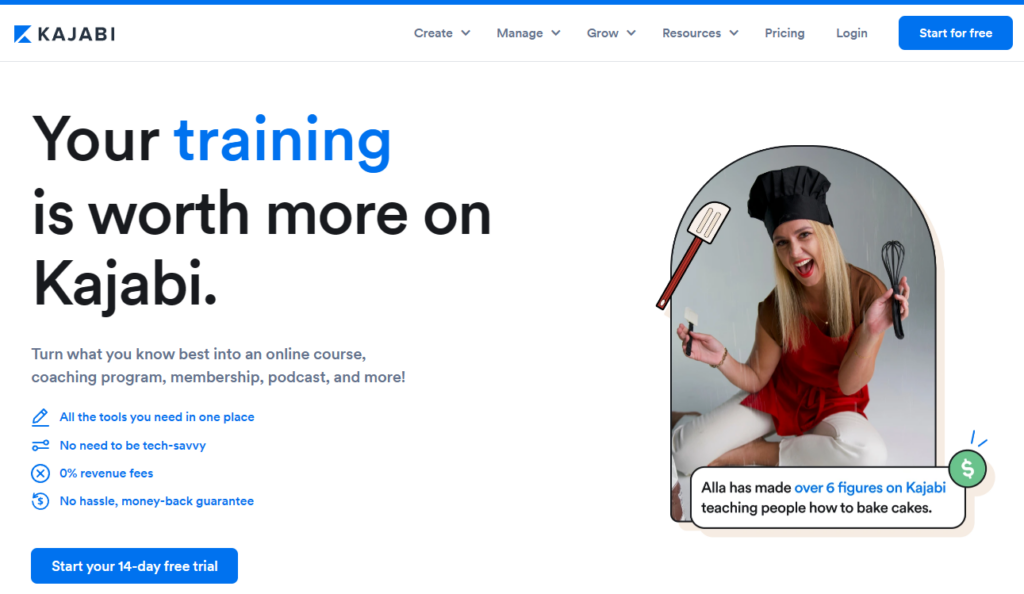E-learning has rapidly become a cornerstone of the modern corporate world. Forecasts indicate that by 2025, the global e-learning market will be touching staggering figures, with a significant chunk of businesses already harnessing the power of online courses to empower their employees.
At the heart of this transformation lies the choice of the right Learning Management System (LMS).
Enter Docebo LMS, a renowned platform that has facilitated countless organizations in their quest for quality online training. Its comprehensive tools and functionalities make it a go-to for many. However, every organization is unique, with distinct needs and aspirations.
The search for an LMS that perfectly complements a company’s ethos and requirements can sometimes lead them beyond Docebo. While its prowess is undeniable, some might find other platforms aligning more closely with their goals.
In this piece, we’ll delve into the intricacies of LMS systems and also explore compelling alternatives, ensuring you make an informed decision for your organization’s educational journey.
Skip ahead:
- Factors to Consider When Evaluating Docebo Alternatives
- Feature Set
- Top Docebo Alternatives
- Determining the Best LMS Fit for Your Enterprise
- Final Thoughts
- Frequently Asked Questions
Skip ahead to the Docebo Alternatives:
| Platform Name | Key Features | Pricing |
| Thinkific Plus | Drag-and-drop course builder, student discussions, customizable course player, built-in sales & marketing tools | Request custom pricing to suit your needs. |
| TalentLMS | User-friendly, built-in course marketplace, gamification, SCORM & xAPI compliant | Starts from $69/month (based on active users) |
| Podia | Online courses, memberships, digital downloads, email marketing, zero transaction fees (on paid plans) | Starts from $39/month. A free plan is available with 8% transaction fees. |
| Kajabi | Comprehensive business tools, course creation, marketing automation, webinars & events | Pricing starts at $119/month |
| Teachable | Drag-and-drop editor, quiz and discussion forums, sales & marketing tools, instant payouts | Basic plan starts from $39/month when billed annually. |
Factors to Consider When Evaluating Docebo Alternatives
Selecting the ideal LMS for your organization extends beyond mere functionalities. It’s about understanding the intricacies of your organization’s needs and finding a platform that resonates with those nuances.
Your Organization’s Needs
Different industries have their own challenges and requirements:
- In healthcare, a premium is placed on patient data privacy and seamless integration with health record systems.
- Tech professionals might lean towards platforms offering the latest software integrations.
- Those in finance often prioritize compliance with rigorous financial regulations.
- For educators, engagement tools can be paramount, aiming to inspire and capture young minds.
Moreover, the size of an organization plays a pivotal role in LMS selection:
- Startups, with their limited resources and smaller teams, often opt for systems that are budget-friendly, easy to set up, and intuitive.
- Large corporations spanning multiple countries or even continents lean towards platforms that emphasize scalability, multi-language support, and complex hierarchical configurations.
Feature Set
Every LMS should come equipped with core functionalities:
- A straightforward course creation module
- Tools to monitor student progression
- Capabilities to conduct versatile assessments
- Efficient user management features
However, the devil, as they say, is in the details. While many platforms claim to have these features, how they are implemented can dramatically alter the user experience. For instance, assessment modules should be flexible to cater to various testing methods, and real-time tracking can enhance user progression insights.
But what truly differentiates one LMS from another are the unique features that they offer:
- AI-powered analytics might provide a deeper understanding of learner behaviors and areas for course improvement.
- Gamification elements can transform routine training modules into captivating learning experiences.
- Integration capabilities with third-party tools can exponentially increase the potential of the platform, providing a more holistic solution.
Such features, though not mandatory, can truly elevate an LMS, marking it as a genuine contender in the realm of online learning platforms.
Pricing and Value
While features and compatibility are paramount in selecting an LMS, the financial implications cannot be overlooked. Every organization has its budget constraints, and understanding the pricing structure is essential for a long-term commitment.
- Subscription Models: Most LMS platforms operate on subscription models, which can be monthly, yearly, or based on user count. Some might offer tiered pricing, where basic functionalities come at a lower cost, and premium features are priced higher. It’s crucial to identify what’s included in each tier to ensure you’re not overpaying for features you don’t need or underpaying and missing out on critical functionalities.
- ROI and Cost-effectiveness: Investing in an LMS is not just about its sticker price. Consider the return on investment (ROI) it offers. Does it streamline operations, reduce administrative overheads, or offer insights that can lead to better training outcomes? Sometimes, a higher upfront cost can translate to long-term savings and more significant benefits. Conversely, a seemingly cost-effective solution might result in hidden costs in the form of regular updates, add-ons, or less-than-stellar customer support.
In essence, when evaluating the pricing and value of a Docebo alternative, it’s vital to look beyond just the initial cost. Comprehensive analysis, including potential long-term benefits and hidden costs, will ensure that your organization achieves the best value for its investment.
Top Docebo Alternatives
When it comes to e-learning platforms, there’s no shortage of choices. Each has its own set of strengths, catering to various business needs and budgetary considerations.
As you search for the perfect fit, here’s a comprehensive overview of five top contenders:
 Image: Thinkific Plus
Image: Thinkific Plus
Docebo, with its strong footprint in the e-learning market, has carved its niche among enterprise-level LMS platforms. However, Thinkific Plus presents an enticing alternative, combining the muscle of enterprise capabilities with the finesse of user-centric design. It’s not just about course creation; it’s about creating an ecosystem where businesses and learners find synergy. Whether you’re a large corporation or a burgeoning startup, Thinkific Plus promises to be the catalyst in your e-learning journey.
Pros:
- Ease of Use: While platforms like Docebo often cater to seasoned e-learning professionals, Thinkific Plus’s design ensures both experts and novices can create courses with equal ease.
- Robust Scalability: From startups to Fortune 500s, Thinkific Plus grows with you, underpinned by its robust architecture.
- Dedicated Support: Thinkific Plus isn’t just a platform; it’s a partnership, marked by a dedicated team ready to guide your e-learning initiatives.
- Tailored Brand Experience: Through its White-label and branded mobile app solutions, your courses truly mirror your brand essence.
Cons:
- Extensive Features: A cornucopia of features awaits, and while it might be a learning curve, it’s a journey filled with e-learning possibilities.
- Enterprise-Centric Design: Primarily tailored for bigger players, Thinkific Plus still offers scalability perks for smaller businesses ready to soar.
Key Features and Benefits of Thinkific Plus:
- User-Friendly Course Builder: Demystifies the course creation process, ensuring even the uninitiated can craft compelling content.
- Holistic Integration Ecosystem: Simplifies e-learning processes by converging various tools into one cohesive platform.
- Unwavering Cloud Security: Offers both course creators and learners an unwavering assurance of data protection and platform reliability.
- Distinctive Branding Capabilities:Ensures every course resonates with your brand’s voice, amplifying engagement and loyalty.
- Engaging Assessment Tools:: Engages learners actively, while offering creators a feedback mechanism to refine and optimize content.
 Image: TalentLMS
Image: TalentLMS
TalentLMS emerges as a holistic solution in the e-learning landscape, designed to simplify training and learning processes for organizations.
Whether it’s onboarding new hires, offering professional development, or implementing compliance training, TalentLMS makes it all effortlessly achievable. Its cloud-based nature means that accessibility is a given, catering to a global and diverse workforce.
TalentLMS offers a well-rounded approach to learning management. With its user-friendly platform, creating courses is straightforward, while the built-in course marketplace provides a reservoir of ready-to-use content.
Gamification is another standout feature, introducing a competitive element that keeps learners engaged and motivated. Additionally, its SCORM & xAPI compliance ensures course content compatibility and portability, providing flexibility to organizations in curating their training materials.
Pros:
- Intuitive interface promotes hassle-free course creation.
- The diverse course marketplace broadens content options.
- Gamification enhances learner engagement.
- Standardized compliance facilitates content integration.
Cons:
- Might lack advanced customization features found in specialized platforms.
- The mobile app experience may vary across devices.
TalentLMS stands out for its emphasis on usability and comprehensive training solutions. Its thoughtful blend of core and unique features ensures that organizations can foster a continuous learning environment, pivotal in today’s fast-paced business world.
 Image: Podia
Image: Podia
Podia extends its reach beyond the conventional Learning Management System, offering creators an ecosystem to house and sell all their digital products. Whether it’s courses, memberships, or downloadable resources, Podia ensures that creators have a centralized platform.
Its mission is to remove the technical barriers often associated with setting up online businesses, letting creators focus on what they do best: teaching and sharing knowledge.
At the heart of Podia is its versatility. Creators can offer online courses alongside memberships and digital downloads, thus diversifying revenue streams.
The platform also integrates email marketing tools, allowing for direct engagement with students and potential customers. Moreover, a significant highlight is the absence of transaction fees, ensuring creators receive the full value of their sales – so long as you’re not using the free plan.
Pros:
- Centralized platform for courses, memberships, and digital products.
- Built-in email marketing tools for enhanced engagement.
- No transaction fees, maximizing profit for creators.
- User-friendly setup without the need for coding.
Cons:
- While versatile, it may not have the depth of specialized LMS features.
- Limited design templates compared to dedicated website builders.
Podia’s strength lies in its ability to offer a holistic digital product storefront, not just an LMS. For creators looking to centralize their online business and interact directly with their audience, Podia presents a compelling choice.
 Image: Kajabi
Image: Kajabi
Kajabi positions itself as more than just an e-learning platform. It’s a comprehensive toolkit designed for knowledge entrepreneurs who are passionate about transforming their expertise into a profitable digital business.
The platform seamlessly integrates course creation with email marketing, website building, and sales funnels, forming an all-encompassing ecosystem for online educators and influencers.
Kajabi’s all-in-one nature means creators can manage everything from course content to sales, all under one roof. Its powerful course builder offers robust customization options while the in-built website and landing page builders ensure a cohesive brand presence online.
Additionally, with Kajabi’s integrated email marketing system, creators can nurture leads and keep their audience engaged, further enhancing sales potential.
Pros:
- A comprehensive suite of tools from course creation to sales.
- Integrated website and landing page builders for consistent branding.
- Robust email marketing features for audience nurturing and engagement.
- Streamlined user experience reduces reliance on multiple platforms.
Cons:
- The all-in-one nature might be overwhelming for some users.
- Pricing might be on the higher side for small businesses or individual creators.
Kajabi’s mission is to simplify the online business journey for knowledge entrepreneurs. By combining essential tools in a single platform, it saves users from juggling multiple platforms, letting them focus on delivering value to their audience.
 Image: Teachable
Image: Teachable
Teachable takes pride in its mission to empower passionate individuals, equipping them with the tools to share knowledge and monetize it.
Focusing on simplicity without compromising functionality, Teachable provides an array of tools, from course creation to marketing and analytics, all tailored to help educators and experts thrive in the digital space.
Teachable’s user-friendly interface ensures that course creation is intuitive, allowing creators to focus on content rather than technicalities. Furthermore, its detailed analytics give insights into student progress and course performance, enabling continuous improvement.
The platform also supports a broad range of media types, from videos and quizzes to PDFs, ensuring a dynamic learning experience. In addition, integrated sales and marketing tools, like one-click upsells, help maximize revenue potential.
Pros:
- Intuitive course creation interface for seamless content management.
- Detailed analytics to monitor both students’ progress and course performance.
- Support for diverse media types promotes engaging learning experiences.
- Integrated sales tools, such as one-click upsells, boost revenue opportunities.
Cons:
- High transaction fees can erode profit margins, especially for smaller creators.
- Might lack advanced customization features found in some other platforms.
Teachable, with its emphasis on simplicity and empowerment, has proven to be a stalwart for many in the realm of online education. While its straightforward nature is commendable, potential users should be mindful of transaction fees, ensuring the platform aligns with their financial objectives.
Determining the Best LMS Fit for Your Enterprise
Navigating through the vast offerings of LMS platforms like Docebo and its competitors necessitates a nuanced approach. A strategic decision hinges on an intricate balance between each system’s advantages and constraints and how these align with your organization’s distinct objectives.
Embarking on trials, obtaining user testimonials, and experiencing demos are essential steps in this selection journey. Remember, selecting an LMS goes beyond its immediate utility – it represents a long-term commitment to your organization’s developmental vision.
Final Thoughts
The exploration of Docebo alternatives illuminates the myriad of LMS choices available, each tailored to cater to the unique demands of different organizations.
Factors such as industry-specific needs, scalability potential, an array of features, cost-efficiency, and overarching value are crucial determinants in this selection process.
Consider Thinkific Plus as an alternative to Docebo
In an ever-evolving e-learning landscape where choices abound, Thinkific Plus stands tall, not merely as an alternative to stalwarts like Docebo, but as a dynamic solution in its own right.
It’s not just about features or pricing—it’s about envisioning e-learning as a collaborative journey, where businesses and learners embark together. Curious about the Thinkific Plus difference? Experience it firsthand and redefine your e-learning paradigms.
Frequently Asked Questions
Q. What are the main reasons organizations look for Docebo alternatives?
Organizations explore Docebo competitors for various reasons, including seeking different features, more cost-effective options, user-friendliness, or superior customer support. Sometimes, it’s merely about finding a better fit for their specific organizational needs or preferences.
Q How do I know if a Docebo alternative is right for my organization?
Identify your organization’s specific LMS needs, then compare them with the features of the potential alternative. Consider factors like scalability, user experience, and integration capabilities. Consulting user reviews and getting hands-on demos can also help in making an informed decision.
Q. Can I switch from Docebo LMS to an alternative without losing my data?
Yes, most modern LMS platforms offer data migration tools or services. Before switching, ensure that the alternative LMS supports importing data from Docebo. It’s also a good practice to back up your data before initiating the transition.
Q. What are the key features to look for in a learning management system?
Key LMS features include intuitive course creation tools, user management, reporting and analytics, mobile accessibility, integration capabilities, and reliable customer support. Depending on your needs, you might also prioritize features like gamification, social learning, or multilingual support.
Q. How can I ensure a smooth transition to a new LMS platform?
For a smooth LMS transition, start with a clear migration plan. Engage with the support teams of both the current and the new platform. Train your staff on the new system, test its functionality before going live, and keep open communication channels for feedback and issues.






